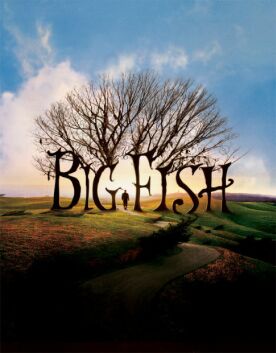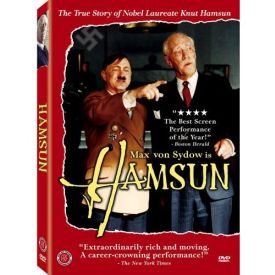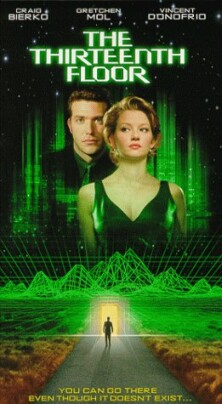Lost in Translation
Call it prejudice, but I believe that movies almost never work when they’re not based on incident — preferably only one or two incidents, so as not to confuse us, but definite events. Things happening. People doing things. Just feeling things isn’t enough. That’s why they’re called movies instead of feelies. They have to move. We expect the moving pictures to represent action, and when we’re forced to sit through nearly two hours of feelings and no actions we — or at least I, with my old-fashioned prejudices — tend to get restless. I’m not saying it can’t be done. Wong Kar-wai did it in In the Mood for Love a couple of years ago. But in that movie we were constantly aware of movement off-screen to which the couple on-screen were reacting.
Sofia Coppola, unfortunately, isn’t interested in anything that might or might not be going on off-screen (or anywhere else). She isn’t really interested in anything but feelings. Her Lost in Translation is a feelings-fest which more closely resembles David Lean’s Brief Encounter (1945), which pretty much set the standard when it comes to dammed up emotions. As in that film, the couple who are the central figures (Trevor Howard and Celia Johnson in 1945, Bill Murray and Scarlett Johansson in 2003) look longingly at each other for what seems like a very long time before deciding to do — nothing.
In 1945, however, there was at least a sense of dramatic tension. Both love and duty were heavy-breathing presences and we could work up some interest in which one of them was going to win out over the other. In 2003, duty is absent without leave and love is left to huff and puff and mist up with unfulfilled longing without ever letting us know what in blazes is preventing it from taking what it wants. You may suppose, if you please, that duty is still around somewhere. There are two or three references to Bill Murray’s kid or kids. But they don’t prevent him from sleeping with another woman who is not his wife. More likely, we’re meant to suppose that he hesitates to pluck the luscious Scarlett fruit because of the age difference between them. But we don’t know. It’s just that exciting.
I guess the way Miss Coppola figures it, we don’t need to know, since all that matters to her is the feelings, not the reasons for them, if any. The feelings take place in a luxurious Tokyo hotel where Mr Murray’s character, a washed-up movie star, is staying while he does a lucrative commercial endorsement of a Japanese whisky. Miss Johansson’s character is there with her husband (Giovanni Ribisi), a celebrity photographer who leaves her to her own devices while snapping the stars, and in particular a brainless starlet (Anna Faris) whom he seems to prefer to her.The feelings on both sides are of disappointment, regret and longing, presented against a backdrop of oriental inscrutability and formality. The fake, oddly theatrical feelings of the Japanese thus set off the so-important Americans and their so-important feelings in the foreground
Bill Murray, it must be said, has an amazingly expressive face, just made to tell a whole history of feeling, and if anyone could bring it off he could. But Miss Johansson is a bore who looks too childish still to provide a persuasive foil to him, or an object of his interest. Supposed to be a Yale grad (signifying: intelligent) she’s obviously not very satisfied with her husband, or his complaints that she’s always too snotty about stupid people like the starlet. But their marriage can hardly be very old, and we are left to wonder what they ever saw in one another. At least Mr Murray and his wife, whose only existence here is on the telephone, from back in America, can be supposed to have grown apart.
The only moment in the film where there is a moment of skepticism about the importance of feelings comes when the girl lounge-singer at the hotel (Catherine Lambert) and her band, “Sausalito” break into a soulfully sincere version of “Scarborough Fair,” which makes the audience crack up. This seems to be the intended result. Yet later, the would-be love birds go to a karaoke bar and sing Elvis Costello’s “What’s so funny ’bout peace love and understanding,” as if we’re meant to be ashamed of ourselves for being even for a moment less earnest about those who feel than is the movie — which is only able to laugh at the poor Japanese. I guess they have no feelings.
Discover more from James Bowman
Subscribe to get the latest posts to your email.







